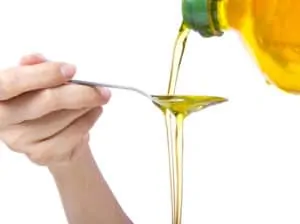Top 4 Causes of Dry Mouth
Dry mouth is an uncomfortable feeling that all of us experience occasionally. But living with a chronically dry mouth isn’t just uncomfortable, it’s unhealthy too. At my Douglasville dental office, we wanted to examine the top causes of dry mouth, why it’s so concerning, and ways to combat it for healthy, happy mouth.
Why Is Dry Mouth Concerning?
When the mouth is dry, it means your body isn’t producing enough saliva to keep it moist. Saliva is crucial for oral health has many jobs. It helps wash away food particles, neutralizes acids, and even kills bacteria. Without it, you’re at increased risk for things like tooth decay and infections in the mouth.
Top Causes of Dry Mouth
- Medications. Many medications can contribute to dry mouth, hundreds in fact. Most commonly, these medicines are those used to treat depression, anxiety, pain, and cancer. Look at the label on your medications to see if dry mouth may be a side effect.
- Diseases & Medical Conditions. Dry mouth could also be caused by another health problems including, but not limited to, Sjögren’s syndrome, HIV/AIDS, and diabetes.
- Smoking & Drinking. Both smoking and drinking alcohol can have a drying effect on the mouth.
- Mouth Breathing. If the mouth is opened for prolonged periods of time, the constant exposure to air dries out the mouth.
Signs & Symptoms
- Cracked, dry lips
- Difficulty swallowing, chewing, or speaking
- Dry throat or tongue
- Bad breath
How to Combat Dry Mouth
Treatment of dry mouth can vary from person to person, depending on their own individual reason for having dry mouth. Some ways you can help stop dry mouth include:
- Drink water throughout the day
- Limit your intake of caffeinated beverages
- Chew sugarless gum to stimulate salivary glands
- Speak with your dentist in Douglasville
If you’ve been suffering from dry mouth, or believe it may be a problem, give my dental office in Douglasville a call to schedule an appointment. We’ll evaluate your symptoms and talk about the possible cause. Then together, we’ll determine the best treatment for you.
Welcoming patients from Douglasville, Lithia Springs, Villa Rica
Does Oil Pulling Actually Work?
By now you’ve probably at least heard of oil pulling, but perhaps you’re unsure as to what exactly it is, how it’s supposed to help your oral health, and if it actually works. Don’t worry, my dental office in Douglasville is here to help. We’ve looked into the now popular technique and we’ve got some good, and not so good, news regarding the latest oral health trend.
Where Did Oil Pulling Come From?
First thing’s first, we need to talk about what oil pulling is and where it came from. While it may seem like a fairly new trend that popped up over the past couple of years, oil pulling is actually a technique that’s over 3,000 years old. Originally founded in Ayurvedic medicine — a holistic approach to medical care, oil pulling claims to help not only oral health, but lists several other whole-body benefits as well. For the sake of this blog, we’re going to focus on the oral benefits.
What is Oil Pulling?
Oil pulling is a pretty simple technique, but requires some time and a commitment. All you need is some liquid vegetable oil, usually coconut oil is used, and 20 minutes. Simply take about a tablespoon of the oil and swish it around in your mouth, pushing and pulling through the teeth, for 20 minutes. Then just spit it out and rinse with water. Repeat daily.
What Does Oil Pulling Do For Oral Health?
There are several supported oral health benefits to oil pulling including:
- Whiter Teeth
- Better Breath
- Reduced Plaque
- Cavity Protection
Does It Work?
Using oil pulling can help in some areas of oral health, but not all. For example, regular oil pulling can remove some surface stains and whiten teeth, even if just a little bit. It can also be used post-brushing instead of mouthwash for boost in fresh breath. Oil pulling can even reduce the amount of plaque in the mouth, but that’s about where the benefits stop. Oil pulling 20 minutes daily doesn’t remove enough plaque to fight against gum disease or help protect cavities, and shouldn’t be used as an alternative to brushing, flossing, and visits with your Douglasville dentist.
In short, more research needs to be done in order to fully understand the possible benefits of oil pulling. Until then, keep brushing and flossing every day and remember to visit my Douglasville dental office twice a year. Maintain those important steps and your mouth will stay healthy.
Accepting new patients from Douglasville, Lithia Springs, Villa Rica





